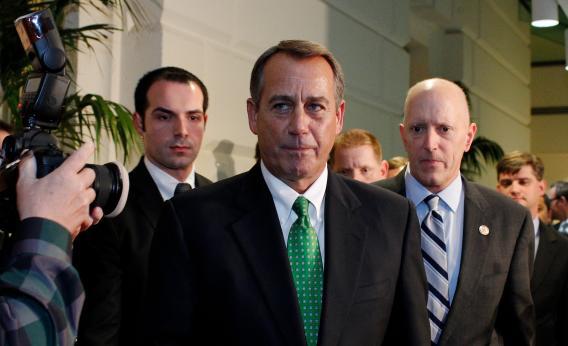As the sequestration fight continues, I’m reminded that I continue to be confused as to why the White House struck the fiscal cliff deal back in January. As you may recall, at that time the country was facing three simultaneous occurences. One was sequestration. One was the full expiration of the Bush tax cuts. One was the expiration of the payroll tax holiday. Democrats and Republicans agreed on a deal that extended more of the Bush tax cuts than Obama had proposed but less than all of them, allowed the payroll tax holiday to fully expire, and kicked the can on the sequestration issue until March 1. Now they’re arguing over whether sequestration should be replaced fully with spending cuts, or with a mix of spending cuts and tax hikes.
Now imagine an alternate universe in which everyone woke up on January 3 to discover sequestration in effect and the Bush tax cuts fully expired. Republicans would have wanted a giant tax cut, and a big increase in defense spending. Obama would have wanted a smaller-but-still-large tax cut, a smaller increase in defense spending, and a substantial increase in non-military spending. It seems like cutting a deal to cut taxes and increase both military and non-military spending could have been struck relatively easily. Yes, the country would have suffered from a week or two or maybe even five of excessive fiscal drag. But with everyone agreeing that taxes are too high and military spending too low, working something out where we raise non-military spending a bit more than Republicans want and in exchange cut taxes a bit more than Democrats want doesn’t seem too hard.
